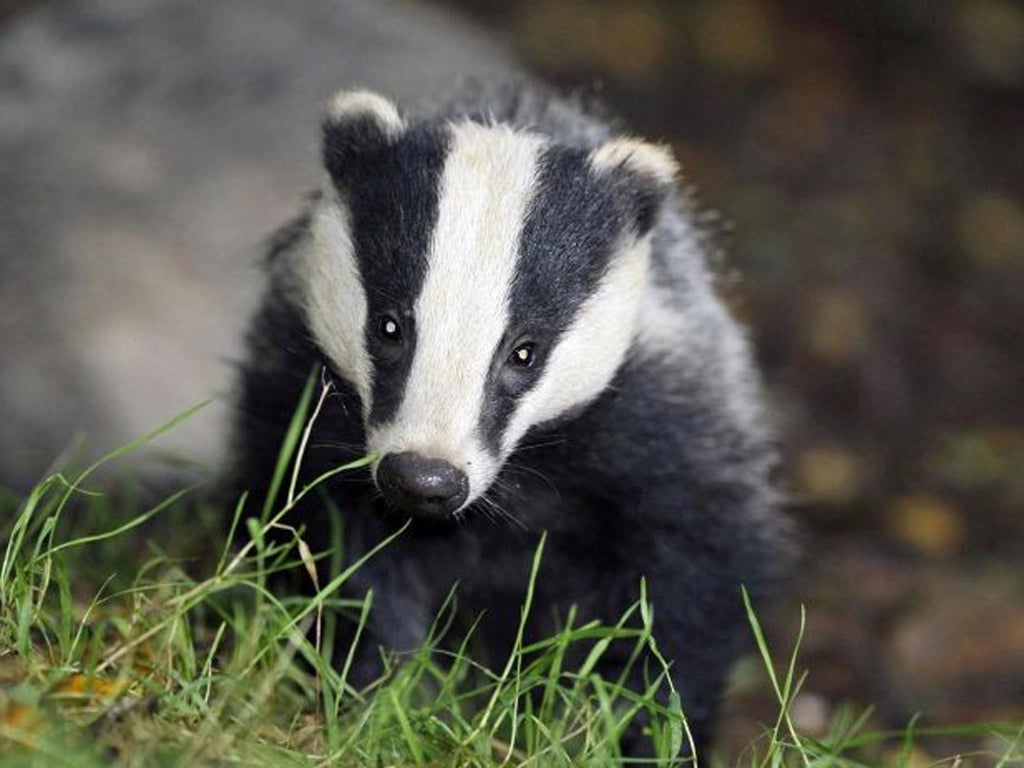As well as cull, contraceptives lined up for badgers in battle against farm TB
Environment Secretary Owen Paterson pledged to eradicate disease from English cattle within 25 years

The government is working on a contraceptive for badgers as it looks for new ways to reverse the rapid spread of bovine tuberculosis in cattle.
A birth control pill or injection could play a key role in reducing the population of badgers which help spread the disease among cows, a government official said today.
TB in cattle has soared over the past decade, resulting in the slaughter of 28,000 infected cows last year, and the government says Britain's growing badger population is largely responsible. Some 28,000 cattle were slaughtered last year at a cost of £100m to the taxpayer.
The Department for Environment, Food and Rural Affairs (Defra) has commissioned research into whether a contraceptive programme for badgers could work and how it could best be delivered.
Farming Minister David Heath said: "We have an overpopulation of badgers at the moment. If we can find ways of reducing the population of badgers in the key areas, allied with reducing the level of infection within those areas, then we probably will be able to bear down on overall endemic infection rate of badgers."
"They are a protected species. Clearly their population is going up and their range is increasing and that is a factor in the spread of this disease," he added.
He was speaking after Environment Secretary Owen Paterson pledged to eradicate TB from cattle in England within 25 years calling the disease "the most pressing animal health problem in the UK".
Mr Paterson plans to cut infection rates gradually in Britain's bovine capital, the south west, and to pull back the frontier - or "edge area" - of the disease until there is nothing left. He is also determined to ensure the north and east of England remain largely TB free.
Although the government's controversial plan to cull 100,000 badgers in the next four years will continue play a central role in the fight to reduce tuberculosis among cattle, it hopes that an effective badger contraception programme could play a significant role in the longer term. Other longer terms measures include creating an effective vaccination for cattle, developing an oral vaccination for badgers - the existing injectable one is difficult and expensive to administer - and improving surveillance of the disease.
Marksmen have been free to shoot badgers in parts of Somerset and Gloucestershire since June 1, when a trial cull formally began. However, they have until 31 January to complete the trial and are not thought to have started yet. The trial requires them to kill 5,000 animals, or 70 per cent of the estimated population in the culling zones and they are thought to be waiting for the nights to draw in to give them more time to shoot the nocturnal creatures.
If the trial determines that the cull can be conducted effectively, efficiently and humanely, it will be rolled out across the country.
However, the trial will not seek to determine how effective the cull is at reducing TB in cattle because that will take years to determine.
Although the government believes the cull will be effective, many scientists are concerned it will actually make the problem worse. They argue that fleeing badgers could carry the disease to new areas, while the vacuum left by the cull could attract new badgers into the area that may be infected.
Launching his 25-year TB-eradication plan, Mr Paterson said: "Today we start a countdown towards an England free from this terrible disease. We must stop bovine TB spreading into previously unaffected areas while bringing it under control in places where it has taken hold".
"It threatens our cattle farmers' livelihoods and our farming industry as well as the health of wildlife and livestock," he added.
Mr Paterson has launched a draft strategy, which is now out for public consultation, which will see Defra working with the farming industry to give farmers buying cattle more information about their TB history.
"A range of crucial TB risk information such as movement and testing history will be shared at point of sale so farmers will know the animal's TB testing history before purchase," a Defra spokesman said.
Asked if the badger overpopulation meant he would support a cull even without bovine TB, Mr Heath said: "No. Because badgers wouldn't represent a sufficient environmental threat."
Join our commenting forum
Join thought-provoking conversations, follow other Independent readers and see their replies
Comments